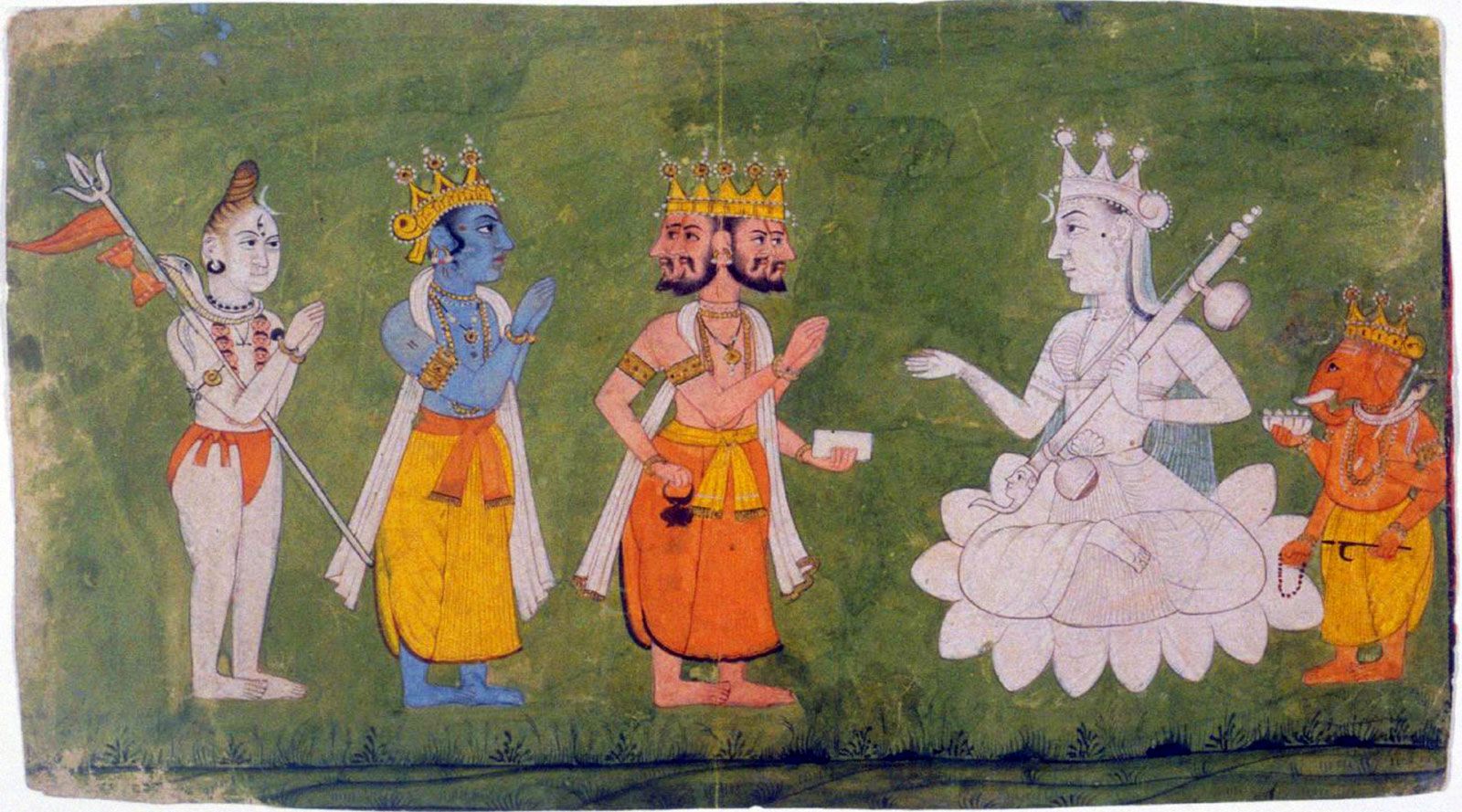karma
- Sanskrit:
- karman (“act”)
- Pali:
- kamma
- Key People:
- Yajnavalkya
- Related Topics:
- Indian philosophy
- reincarnation
- action
karma, in Indian religion and philosophy, the universal causal law by which good or bad actions determine the future modes of an individual’s existence. Karma represents the ethical dimension of the process of rebirth (samsara), belief in which is generally shared among the religious traditions of India. Indian soteriologies (theories of salvation) posit that future births and life situations will be conditioned by actions performed during one’s present life—which itself has been conditioned by the accumulated effects of actions performed in previous lives. The doctrine of karma thus directs adherents of Indian religions toward their common goal: release (moksha) from the cycle of birth and death. Karma thus serves two main functions within Indian moral philosophy: it provides the major motivation to live a moral life, and it serves as the primary explanation of the existence of evil.
Derived from the Sanskrit word karman, meaning “act,” the term karma carried no ethical significance in its earliest specialized usage. In ancient texts (1000–700 bce) of the Vedic religion, karma referred simply to ritual and sacrificial action. As the priestly theology of sacrifice was articulated by Brahman priests over the following centuries, however, ritual action came to be regarded as effective by itself, independent of the gods. Karma as ritual functioned autonomously and according to a cosmic ritual law.
The earliest evidence of the term’s expansion into an ethical domain is provided in the Upanishads, a genre of the Vedas (sacred scriptures) concerned with ontology, or the philosophical study of being. In the middle of the 1st millennium bce, the Vedic theologian Yajnavalkya expressed a belief that later became commonplace but was considered new and esoteric at the time: “A man turns into something good by good action and into something bad by bad action.” Although within the Vedic ritual tradition “good action” and “bad action” may have included both ritual and moral acts, this moral aspect of karma increasingly dominated theological discourse, especially in the religions of Buddhism and Jainism, which emerged about the middle of the 1st millennium bce. Both of these religions embraced ascetic modes of life and rejected the ritual concerns of the Brahman priests.

The connection between the ritual and moral dimensions of karma is especially evident in the notion of karma as a causal law, popularly known as the “law of karma.” Many religious traditions —notably the Abrahamic religions that emerged in the Middle East (Judaism, Christianity, and Islam)—place reward and punishment for human actions in the hands of a divine lawgiver. In contrast, the classical traditions of India—Hinduism, Buddhism, and Jainism, much like the Vedic sacrificial theology that preceded them—view karma as operating according to an autonomous causal law. No divine will or external agent intervenes in the relationship of the moral act to its inevitable result. The law of karma thus represents a markedly nontheistic theodicy, or explanation of why there is evil in the world.
Once a divine judge is taken out of the equation, a new question arises: within a causal sequence, how can an act produce an effect at a future time far removed from the act’s performance? Different Indian moral philosophies provide different answers, but all acknowledge some kind of karmic residue resulting from the initial act. Jainism, for example, regards karma as a fine particulate substance that settles on the soul (jiva) of one who commits immoral actions or has immoral thoughts, making it impure and heavy and miring it in the material world of rebirth. The Vedic ritualistic tradition that preceded Hinduism contributed the concept of the apurva, the latent potency created within the soul by ritual and moral actions. Much like a seed, an apurva sprouts into new realities in the distant future. Other traditions—e.g., Yoga and Buddhism—provide psychological explanations in which karmic residue produces dispositional tendencies (samskaras) and psychological traces (vasanas) that determine the future births and personality traits of an individual. Each of these examples demonstrates how the concept of karma provided a bridge between cause and effect separated by time.
The doctrine of karma implies that one person’s karma cannot have an effect on another person’s future. Yet, while karma is in theory specific to each individual, many aspects of Indian religions reflect the widely held belief that karma may be shared. For example, the doctrine of the transfer of merit, whereby one person can transfer his good karma to another, is found in both Buddhism and Hinduism. Ancestral offerings and other rituals for the departed show that acts done by the living are believed to influence the well-being of the dead. Finally, pious activities, including pilgrimages, are often performed for the benefit of living or deceased relatives.











